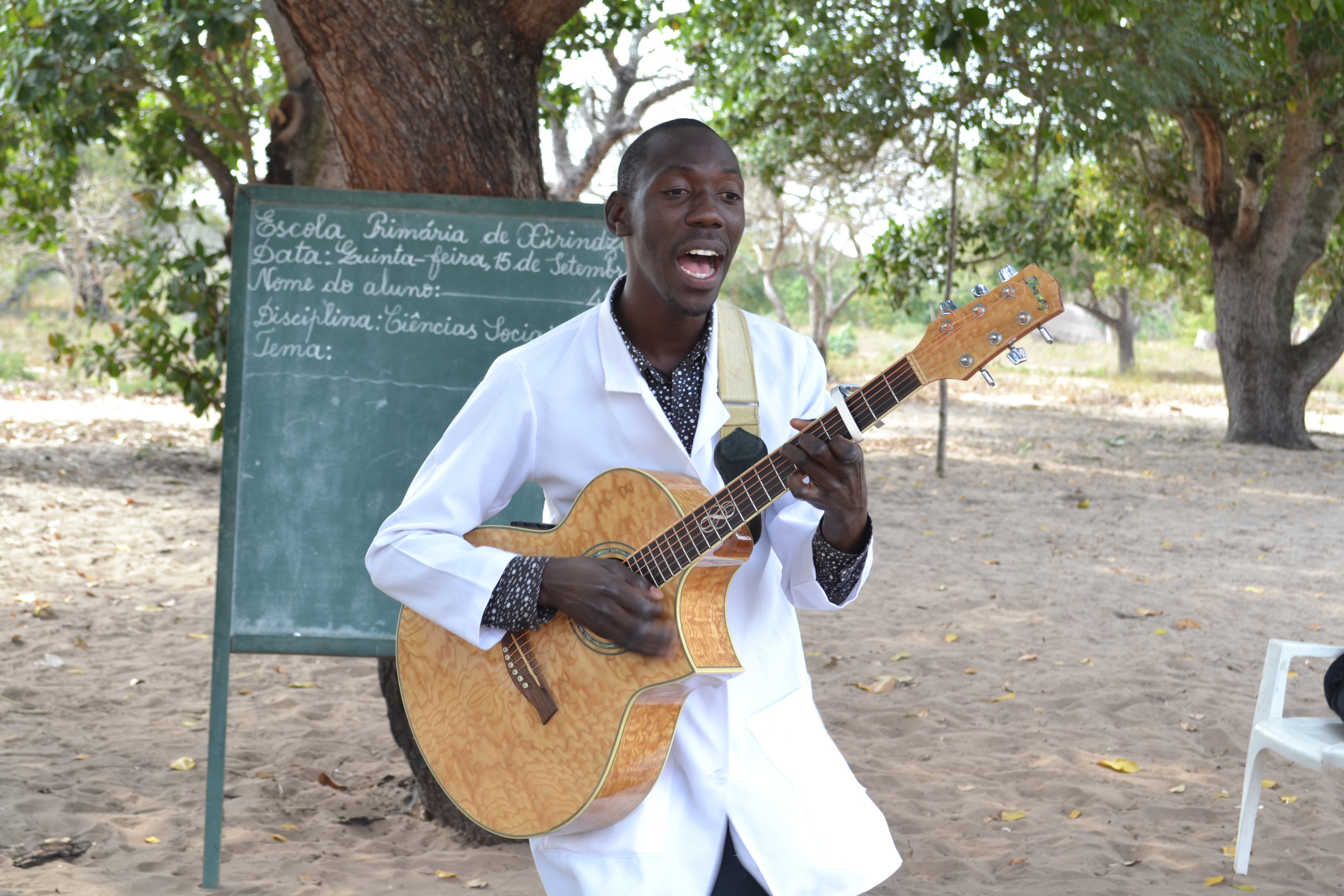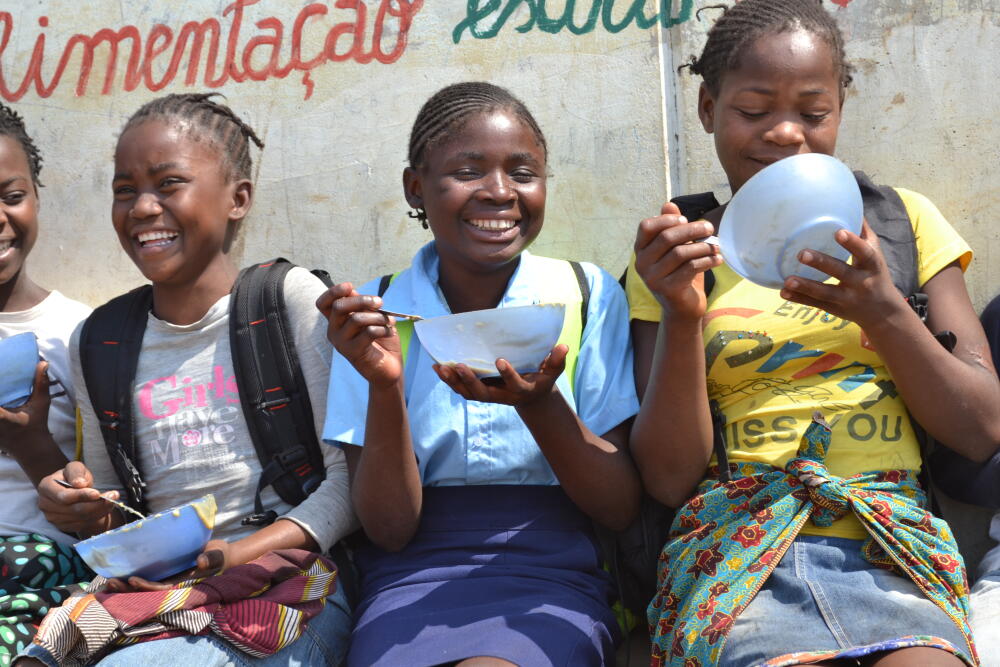Something to Sing About

Under a tree and with a guitar in hand, Lisboa Alberto melodically begins his social science lesson with a song, and is soon joined by the sweet voices of his fourth grade class.
"I always try a creative way to motivate my students to have a propensity for learning and this is why I always take my guitar to class with me," said Alberto, who works at Chirindza Primary School about 50 miles from the capital city of Maputo.
Alberto has been teaching in rural Mozambique for eight years. He knows of the many challenges children face in the countryside, the hungry bellies and the pressure stay home to work rather than attend school. When Chirindza was selected to participate in the Food for Knowledge project in 2013, Alberto was as excited as everyone else about the arrival of the fortified porridge lunch.

Now, three years later, Alberto sees a substantial difference in his students' engagement and overall bearing. "They are more attentive and participative throughout the semester," he said, "and they have increased their educational achievement."
In addition to having reduced the dropout rates, the school lunches attracted more children to school. The project also helped organize extracurricular activities, such as after-school reading clubs, to help promote learning.
To reduce the number of days children miss school because of illness, hygiene and sanitation classes were provided that focused on reducing the risk of contagion. Handwashing facilities were also set up at the schools and a double latrine built with separate facilities for boys and girls. Washing hands with soap and water before lunch and after using the latrines has become part of the daily protocol. The project also drilled a new well for water and built a kitchen where the meals could be cooked.
Click to read more about the other facets and activities of Food for Knowledge.
